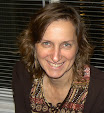I just finished this book two days ago. I started it book before Christmas. It was a bad time to start a new book. I usually swallow them whole, reading them in a few days at most, but these months have been too busy to immerse myself in a book. I bought this book from the sale table at the UW bookstore. It followed on a conversation I had just had with my niece, only hours at the most before I saw this book. My 18 year old niece had been talking about wanting to backpack India. This niece has some things in common with me, some of them being a writer and also a curiosity and desire to explore the unknown.

So when I saw this book, I thought of my niece, and thought that maybe she would like it for her birthday, but I would read it first! In the end I bought her a David Sedaris collection of stories, and I did read a little of that book first too.
I had read some of the books written by "The Beats" over the years, but I think I was too young to put their lives in much context from their writing. I discarded a lot of writing that was misogynist or exempted women in any real way. This was the bar which every male author had to pass for me to take them to heart. Still true. But the fly-leaf really captured me, as well as that this book was written by a woman.
And, not the least of it, having just talked to my niece about backpacking India.
In
A Blue Hand Deborah Baker quotes Kafka, "From a certain point onward there is no turning back. That is the point that must be reached." I think her entire biography leads up to this quote, which is near the end. And, as it is perhaps meant to, sums up what she is saying about the Beats.
I came to resonate with Allen Ginsberg in this bio and respect Baker's writing. Baker made me like them all and be disgusted by them all, back and forth. She made them so vulnerable, that my judgments of their choices would be overcome by my understanding of what they craved. I often felt I walked hand in hand with Ginsberg from the early pages where Baker relates Ginsberg vision of God that begins to drive him and then through his journey through India, which Ginsberg began the year I was born.
Thirty years ago I had a dream of no turning back. In the dream I was sitting on my bed with my ex-boyfriend and a woman shaman I had just met, a friend of one of my roommates. I dreamed we were all holding hands. Just a bit off I saw a silver cloud moving toward us and I knew I would be swallowed by this cloud and transformed. I said to the others, "I am going to let go and not come back!" The cloud moved over us and I lost awareness of their hands in mine and then the cloud was gone and we three were sitting there holding hands. It may seem in retrospect that nothing had happened. But clear to me was that the most important thing, the only important thing, had happened: I had let go. I had let go with no expectation or desire for return. That this was a dream did not lessen its impact on me. For me, these sorts of moments have brought the greatest healing and transformation.
I have come to the conclusion (for now) that we all live in different realities of what's reality. We can search for people or communities that support our beliefs or simply accept what we think to be true without a need for outside acceptance. Or we can go forward with the thought that maybe nothing is true in a fixed way. In
A Blue Hand Baker paraphrases Gregory Corso saying "The problem with Truth is that once you say something is true, you cannot move forward: The way is blocked. If you merely say, 'This is true,' where do you go from there?"
 Bill and I just returned from a 2 1/2 week 4,000 mile road trip. The timing was planned around the spring bloom just north of Yellowstone at our friend's Mary and Peter's. Unfortunately there was a blizzard when we first went through, so after two weeks of travelling south, we came back and captured as many flowers as we could in two half days. Here we are in Yellowstone.
Bill and I just returned from a 2 1/2 week 4,000 mile road trip. The timing was planned around the spring bloom just north of Yellowstone at our friend's Mary and Peter's. Unfortunately there was a blizzard when we first went through, so after two weeks of travelling south, we came back and captured as many flowers as we could in two half days. Here we are in Yellowstone. This is Mary. Mary and Peter have been studying and shooting pictures in Yellowstone for some years.
This is Mary. Mary and Peter have been studying and shooting pictures in Yellowstone for some years.






 Of course, most people come to Yellowstone for the wildlife, and there was plenty of that, too. These are bison, and there were hundreds, if not more, down along the river.
Of course, most people come to Yellowstone for the wildlife, and there was plenty of that, too. These are bison, and there were hundreds, if not more, down along the river.  But my favorite shot of them all was this raven, trickster that she is, she got me to shoot myself at the same time.
But my favorite shot of them all was this raven, trickster that she is, she got me to shoot myself at the same time.





















